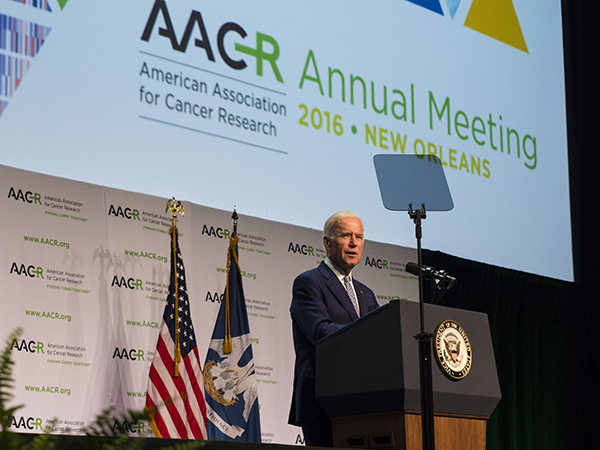FDA Rounded out 2019 by Approving a New Treatment for Pancreatic Cancer
In the final days of 2019, the U.S. Food and Drug Administration (FDA) expanded the use of a previously approved molecularly targeted therapeutic called olaparib (Lynparza) to include treating certain patients diagnosed with one of the deadliest types of cancer—pancreatic cancer.
National Cancer Institute (NCI) statistics estimate that 56,770 U.S. adults were diagnosed with pancreatic cancer in 2019 and that 45,750 people died from the disease. Pancreatic cancer is a highly aggressive disease; just 9 percent of patients are expected to live five or more years after diagnosis. The outlook is even worse for those diagnosed with metastatic pancreatic cancer; just 2 percent are alive five or more years later.
The grim five-year relative survival statistics highlight why there was so much delight in the pancreatic cancer community when the FDA approved olaparib for treating certain patients with metastatic pancreatic cancer that has not progressed during first-line treatment with a platinum-based chemotherapy regimen. The FDA also granted marketing authorization for a test to identify those patients eligible to receive olaparib: patients with an inherited, cancer-associated BRCA1 or BRCA2 (BRCA1/2) mutation.
Before this approval, there were no molecularly targeted therapeutics approved for treating pancreatic cancer.
Researchers estimate that 4 percent to 7 percent of all pancreatic cancers diagnosed in the United States are attributable to an inherited BRCA1/2 mutation. As discussed in a previous post on this blog, inherited BRCA1/2 mutations also account for between 5 percent and 10 percent of breast cancer cases and ovarian cancer cases diagnosed in U.S. women.
Cancers caused by inherited BRCA1/2 mutations are susceptible to therapeutics like olaparib that target ADP-ribose polymerase (PARP) proteins, and the molecularly targeted therapeutic was approved by the FDA for treating patients with ovarian cancer caused by an inherited BRCA1/2 mutation in December 2014 and for treating patients with breast cancer caused by these mutations in January 2018.
The success of olaparib as a treatment for BRCA1/2-mutant breast and ovarian cancer led researchers to investigate whether the molecularly targeted therapeutic might also benefit patients with pancreatic cancer caused by an inherited BRCA1/2 mutation. Results from the randomized, placebo-controlled phase III POLO trial, which were recently published in the New England Journal of Medicine, showed that olaparib did improve outcomes for these patients. Olaparib was found to almost double the median time to disease progression for patients with inherited BRCA1/2 mutation–associated pancreatic cancer who had received a minimum of 16 weeks of continuous platinum-based chemotherapy and had no evidence of disease progression at the time of starting olaparib. Progression-free survival was 7.4 months for those who received olaparib compared with 3.8 months for those who received placebo.
It is important to note that an interim analysis showed no difference in overall survival between those receiving olaparib and those receiving placebo. Median overall survival among those patients who received olaparib was 18.9 months compared with 18.1 months among those who received placebo. In the New England Journal of Medicine paper, the researchers note that this difference may be because nine patients who initially received placebo (15 percent of those in that group) went on to receive a PARP-targeted therapeutic after disease progression.
Several other PARP-targeted therapeutics are being tested in clinical trials as potential new treatments for pancreatic cancer and we look forward to keeping Cancer Research Catalyst readers up to date with results from these trials as they become available.




